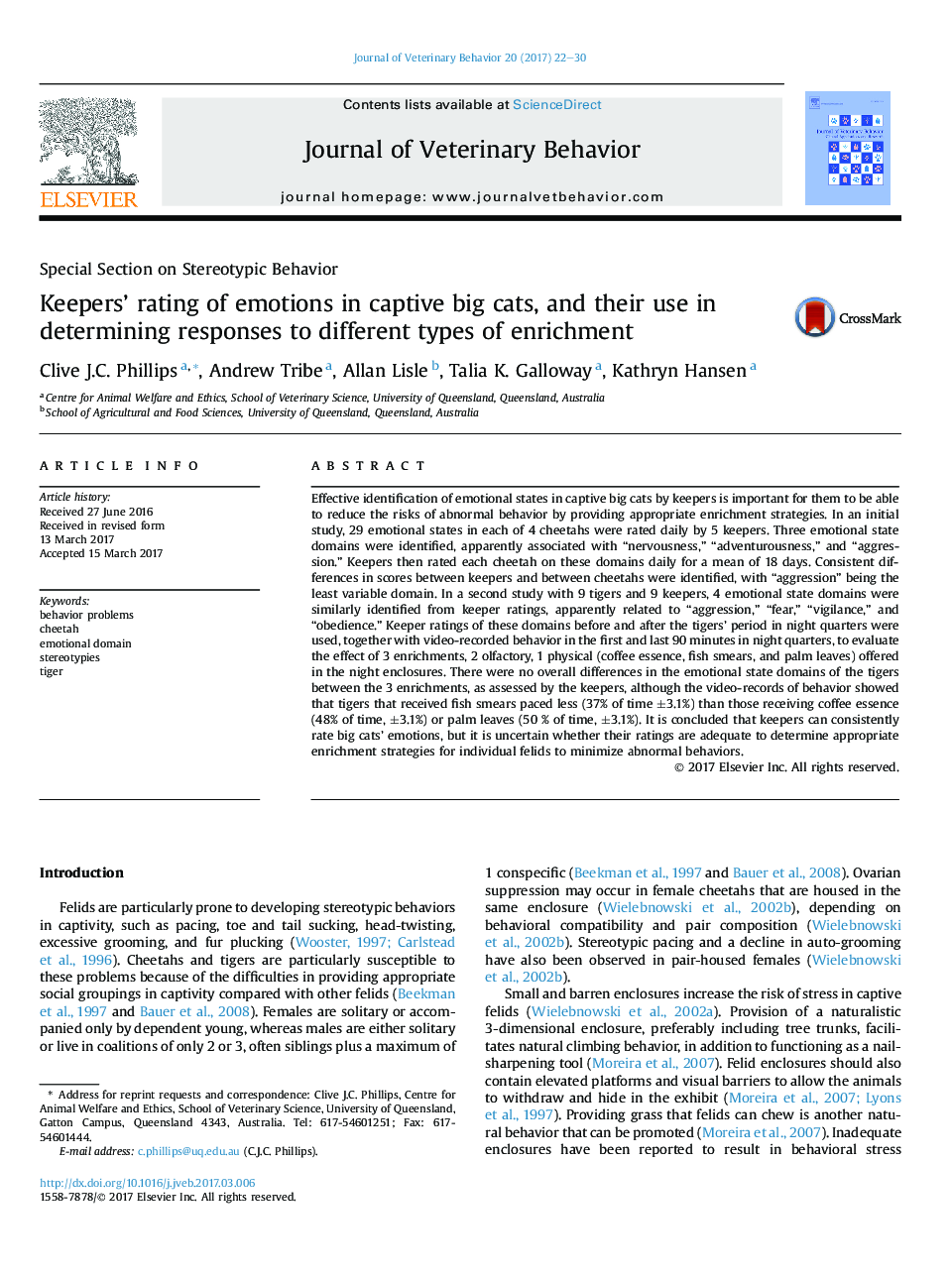| Article ID | Journal | Published Year | Pages | File Type |
|---|---|---|---|---|
| 5535825 | Journal of Veterinary Behavior: Clinical Applications and Research | 2017 | 9 Pages |
Abstract
Effective identification of emotional states in captive big cats by keepers is important for them to be able to reduce the risks of abnormal behavior by providing appropriate enrichment strategies. In an initial study, 29 emotional states in each of 4 cheetahs were rated daily by 5 keepers. Three emotional state domains were identified, apparently associated with “nervousness,” “adventurousness,” and “aggression.” Keepers then rated each cheetah on these domains daily for a mean of 18 days. Consistent differences in scores between keepers and between cheetahs were identified, with “aggression” being the least variable domain. In a second study with 9 tigers and 9 keepers, 4 emotional state domains were similarly identified from keeper ratings, apparently related to “aggression,” “fear,” “vigilance,” and “obedience.” Keeper ratings of these domains before and after the tigers' period in night quarters were used, together with video-recorded behavior in the first and last 90 minutes in night quarters, to evaluate the effect of 3 enrichments, 2 olfactory, 1 physical (coffee essence, fish smears, and palm leaves) offered in the night enclosures. There were no overall differences in the emotional state domains of the tigers between the 3 enrichments, as assessed by the keepers, although the video-records of behavior showed that tigers that received fish smears paced less (37% of time ±3.1%) than those receiving coffee essence (48% of time, ±3.1%) or palm leaves (50 % of time, ±3.1%). It is concluded that keepers can consistently rate big cats' emotions, but it is uncertain whether their ratings are adequate to determine appropriate enrichment strategies for individual felids to minimize abnormal behaviors.
Related Topics
Life Sciences
Agricultural and Biological Sciences
Animal Science and Zoology
Authors
Clive J.C. Phillips, Andrew Tribe, Allan Lisle, Talia K. Galloway, Kathryn Hansen,
